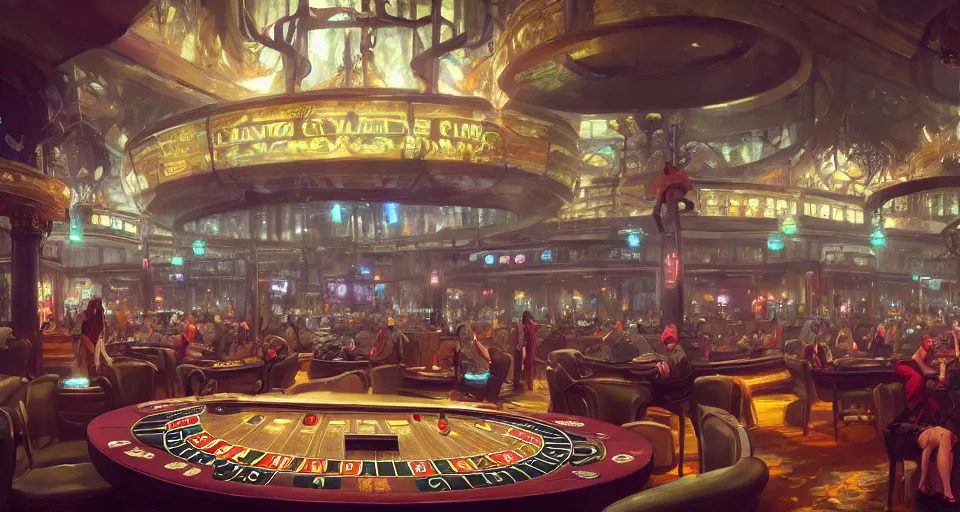Gambling house

Howdy! Welcome to the Gambling House. We got cards, we got dice, and everything nice! Oh? You’re not here to play? Well in that case let me tell you one of the most important skills to have around this town. Bluffing!
When to bluff
A lot of characters on the list (both good and evil) have an incentive to keep their identity a secret and bluff as another character in the game. Being truthful to the town when you’re the Exorcist is a good way to get yourself killed fast. Claiming you’re the Innkeeper, Tea Lady, or Pacifist is another excellent way to put a target on your back. But even roles that seem ‘safe’ to come out as might benefit from a good bluff. If you’re the Fool it might be a good idea to let the town believe you’re a valuable target, wasting some of the Demon’s precious.
There is a flip side to bluffing, however. If you change your story too much throughout the game, your fellow players might be less inclined to believe you. To avoid this, maybe come out truthfully to one or two players you trust, before conning the rest of the town. If you’re on the good team, you should eventually put all your cards on the table though, no matter which character you are. All bits of information can help to figure out who that pesky Demon is!
When you’re evil, you should definitely bluff! And don’t stop bluffing, ever. At the beginning of the game, the evil team gets to know three good characters that are not in play. Meaning, you can claim to be one of these characters without the risk of someone else already having that role and counterfeiting your claim. But don’t be limited by these character bluffs though. Especially as a Minion, it is not the worst thing to claim to have the same role as another player. This will make both of you look suspicious for sure, but that means that the other players take both of your information with a grain of salt.
Tips when bluffing
The best thing you can do when bluffing as another character is to read up on exactly how that character works! Other players will know something is wrong when you get a detail wrong about your supposed character. Every character on the character list includes some tips about bluffing as that specific character. These tips are mostly there for the evil team, but it can’t hurt to read them either way. In some cases, it is good to have a backup bluff to your original bluff! Your claim can look less solid out of nowhere, so be prepared when someone accuses you of lying.
For example: You are evil and claiming to be the Chambermaid. However, since last night, your information doesn’t line up with that of another player. You have three options to mitigate that conflict:
a) Maybe you’re drunk, or poisoned? Or they might be? No reason for suspicion!
b) Claim that they are evil! They are the ones lying! Not you!
c) Agh, you got me! In actuality, I am the Fool! As I don’t get any useful information, I claimed to be the Chambermaid so that the Demon would waste a kill on me!
Tell the storyteller!
While the storyteller will never aid your bluff out in the open, they won’t undermine it either! Upon death, feel free to claim that you’re a Moonchild, and pick a player. Or make a Gossip statement. The storyteller won’t call you out saying that you’re not supposed to do those things. Telling the storyteller what you’re bluffing as is often a good idea. They often find themselves in a position where they have to make judgment calls (for instance, when a character is drunk). Knowing what you’re pretending to be makes their choices easier and more informed. For instance, if you claim to be the Gambler, it can be interesting for the storyteller you kill you off whenever there is a correct Gossip statement. The storyteller is not on anyone’s side, good or evil, but has the job to make the game as exciting as possible. Giving them the ability to create some extra drama is a chance they will often take.

